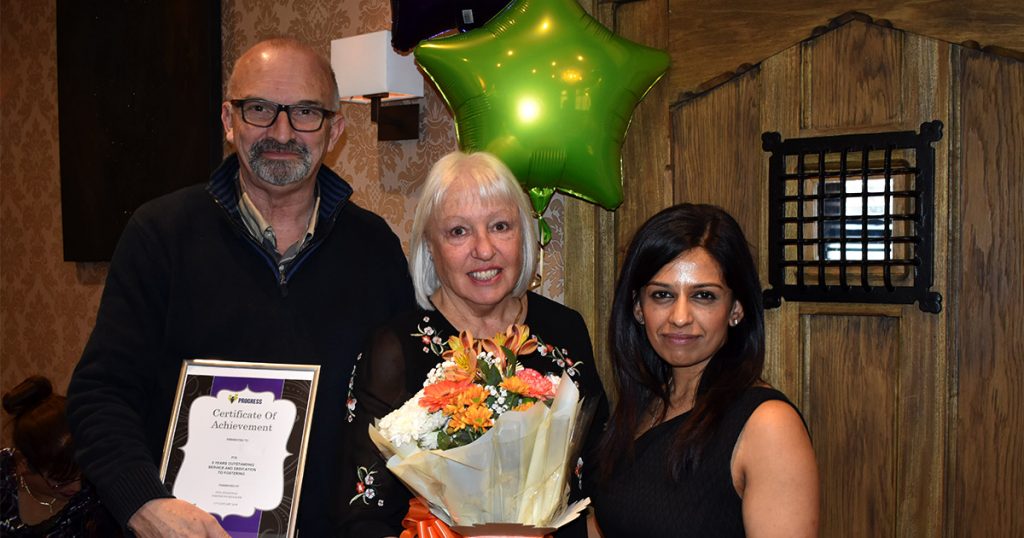Why I foster: Jane
In a new series of interviews we have asked Progress foster carers why they foster care and how fostering changes lives.
Jane has been caring for Fariha. This is her story.
I have worked with and cared for young people with complex disabilities for over twenty years. I may be biased; but welcoming a young person into your home is hugely rewarding, especially when you see the positive impact you are having on their life. It is an absolute pleasure for my husband Mark and I to provide foster care.
We took a break from fostering a few years ago, to recharge our batteries and then went back to Progress with a renewed optimism to help a child. Progress informed us about Fariha, and we really wanted to care for her.
Fariha has severe disabilities and was residing in a home. She is a wheelchair user, has significant learning, speech and language delay as well as some visual and hearing problems. Fariha had an few unsettled years; having moved from place to place.
Imagine if you went through that?
We were so pleased when Fariha was placed with us.
Mark (who worked in the police force for over thirty years), was initially worried about fostering a child with complex needs, due to his lack of knowledge and experience. However, he felt more confident once he took part in the training and support Progress gave us.
In preparation for Fariha’s placement, our home was assessed by occupational health professionals and some adaptations were made.
One such example was the fitting of several small ramps inside as well as handrails, so Fariha could move freely around the house.
We asked as many questions as we could about Fariha’s needs, personality and behaviours, so she would be comfortable in her new home. A transition plan was sent to us, to ensure we had a good understanding of her daily requirements and routines, and this really helped.
Fariha’s bedroom was decorated to her own individual needs and although she cannot verbalise her preferences, we ensured her bedroom had a calming atmosphere to encourage and promote sleep and relaxation.
Taking care of a child with disabilities can seem quite daunting, and you will face a lot of challenges. Giving unconditional love to a child is a given, but you must also have patience and understanding. When you can do this, you will see many wonderful things.
At one of our first meetings, we were told not to expect any hugs or sitting on laps from Fariha, and that she would be stationary. Mark and I would always encourage her to reach out to us. Within the first month, Fariha reached out to Mark, insinuating that she wanted to be picked up! I could not believe it! Fast forward to today (with a little bit of work) – Fariha will raise up on her knees to be picked up for a cuddle or to sit on your lap.
It has been wonderful, getting to understand the faces she pulls and the noises she makes when she is happy or sad. This may seem like a little thing, but knowing where she was, to where she is now, these moments are huge! Fariha has also settled well into her new school. Her initial phased start to the term has now turned now into a full-time schedule. We are so proud of how Fariha has coped with this.
We own a caravan and take trips across the country with Fariha. She loves the beach and the noises of the waves crashing and the feeling of the wind on her face and hair.
Mark and I have committed a lot of time caring for Fariha. You must think about the demands that caring for a child has on you as an individual, a couple and wider family. As a couple we try to get away when we can and spend time together.
That said, our lives have become much richer by looking after Fariha. When I see her smile, I realise what a special girl she really is.




